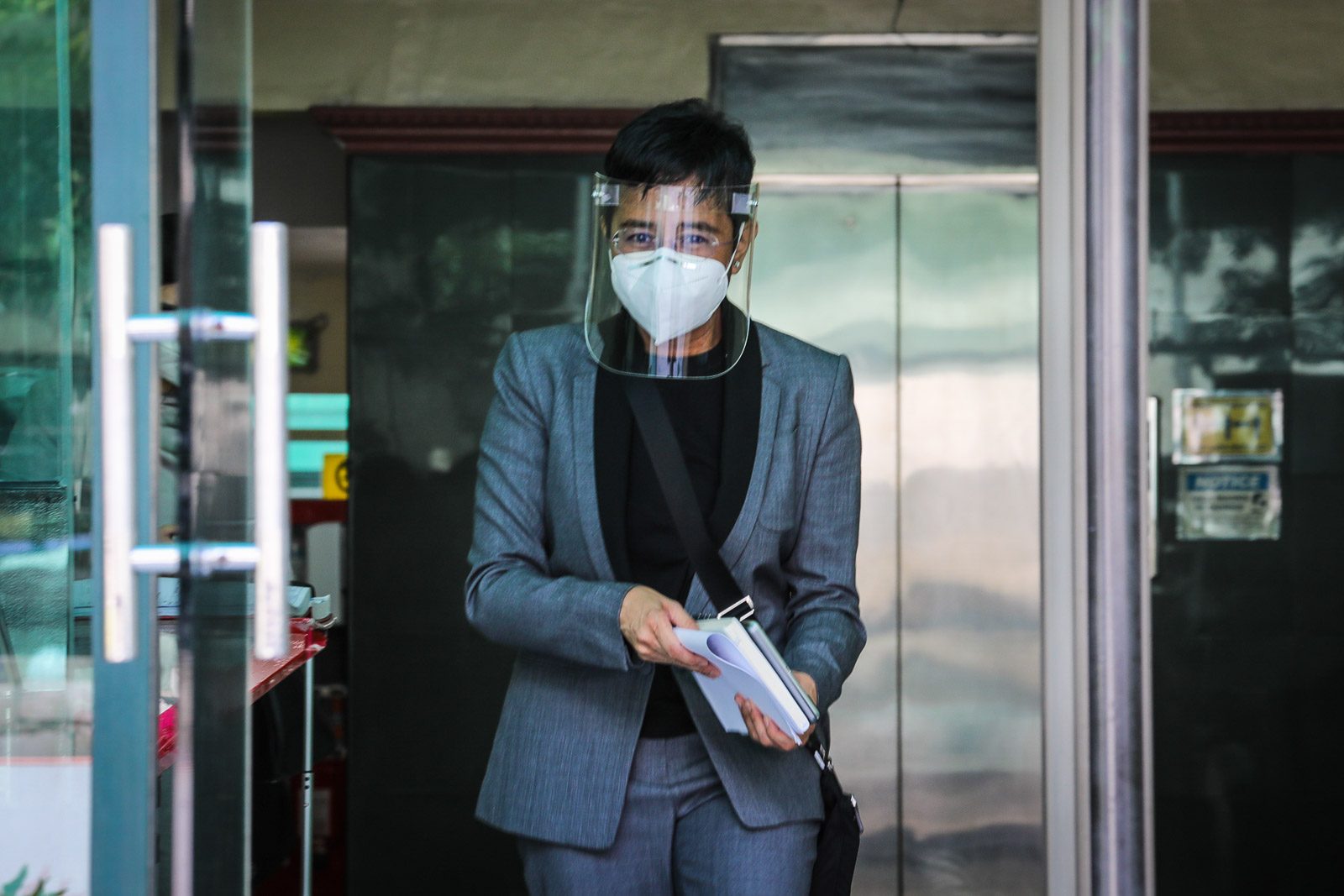SUMMARY
This is AI generated summarization, which may have errors. For context, always refer to the full article.

Attacks on civic freedoms across the world, including the Philippines, remain unhampered despite the impact of the raging coronavirus pandemic, according to a report released on Monday, October 5.
CIVICUS Monitoring, the research tool of international alliance CIVICUS, said in its latest report that attacks on freedom of information also increased, with the media and citizens affected by government policies that are deemed oppressive.
The report said that “the assault on the freedom of expression and media freedom in the Philippines has persisted.”
Documented incidents in the report include the shutdown of broadcast giant ABS-CBN and the cyber libel conviction of Rappler CEO and executive editor Maria Ressa and former researcher-writer Reynaldo Santos Jr.
Ressa and Santos were convicted in June 2020 over charges filed by businessman Wilfredo Keng in a case that tested the 8-year-old Philippine cybercrime law. The conviction came after years of intimidation and harassment from allies of the Duterte government and President Rodrigo Duterte himself.
ABS-CBN, the Philippines’ largest broadcaster, was ordered shut by the National Telecommunications Commission after its franchise expired in May. It also failed to secure a new franchise from the House of Representatives. (READ: Duterte’s ace against ABS-CBN, the Philippines’ biggest network)
The report also highlighted the situation in Turkmenistan and Turkey, where journalists, health professionals, and citizens alike are intimidated or, worse, jailed for speaking out or pursuing stories in relation to the coronavirus crisis.
These actions, the report read, are “particularly concerning given the importance of having access to accurate information and the crucial role of journalists and the media during the pandemic.”
CIVICUS Monitoring lead Marianna Belalba Barreto called on states to refrain from imposing “unjustifiable restrictions” on flow of information, especially during a pandemic.
“The free flow of information is essential, particularly during a public health emergency,” she said. “It is fundamental that the media can operate in a free and uncensored environment.”
Peaceful protests attacked
CIVICUS Monitoring also monitored from April 11 to August 31 violations made during peaceful protests, including disruptions, detentions of protesters, and the use of excessive force by state authorities, including police.
These protests subjected to reprisal include the Black Lives Matter movement in the United States, the movements against Jair Bolsonaro’s flawed response to the coronavirus crisis in Brazil, and the pro-democracy movement in Hong Kong against China.
The responses of the authorities to these protests, CIVICUS Monitoring noted, are “inconsistent with international law and standards and not in line with recommendations by international mechanisms.”
It also emphasized that “law enforcement officials must refrain from using excessive force or arbitrarily detaining protesters while dispersing peaceful gatherings.”
“While international law is clear, some states have gone beyond justifiable restrictions, with negative consequences on civic space and human rights while also creating additional barriers for already excluded groups,” it added.
CIVICUS’ Belalba Barreto, meanwhile, said that a statement of emergency is not enough to justify the use of excessive force, as it is contrary to international law.
“The COVID-19 crisis should not be used as a pretext to suppress the right to peaceful assembly,” she said.
Continuing consolidating of power
Aside from threats to freedoms of assembly and information, the CIVICUS Monitoring report also reiterated the ongoing trend that shows the weaponization of the law and efforts to consolidate power in many countries during the coronavirus pandemic.
The report said that there are states that pushed to “enact overly broad and vague emergency legislation and pass restrictive laws without adequate consultation with civil society.”
These come in the form of emergency acts that grant more powers to leaders and their governments, such as what happened in Botswana, Cambodia, Hungary and Egypt, among others.
“In many countries the emergency measures introduced to tackle the pandemic have had troubling impacts on human rights and the space for civil society,” the report read. – Rappler.com
Add a comment
How does this make you feel?


![[Time Trowel] Evolution and the sneakiness of COVID](https://www.rappler.com/tachyon/2024/02/tl-evolution-covid.jpg?resize=257%2C257&crop=455px%2C0px%2C1080px%2C1080px)


There are no comments yet. Add your comment to start the conversation.